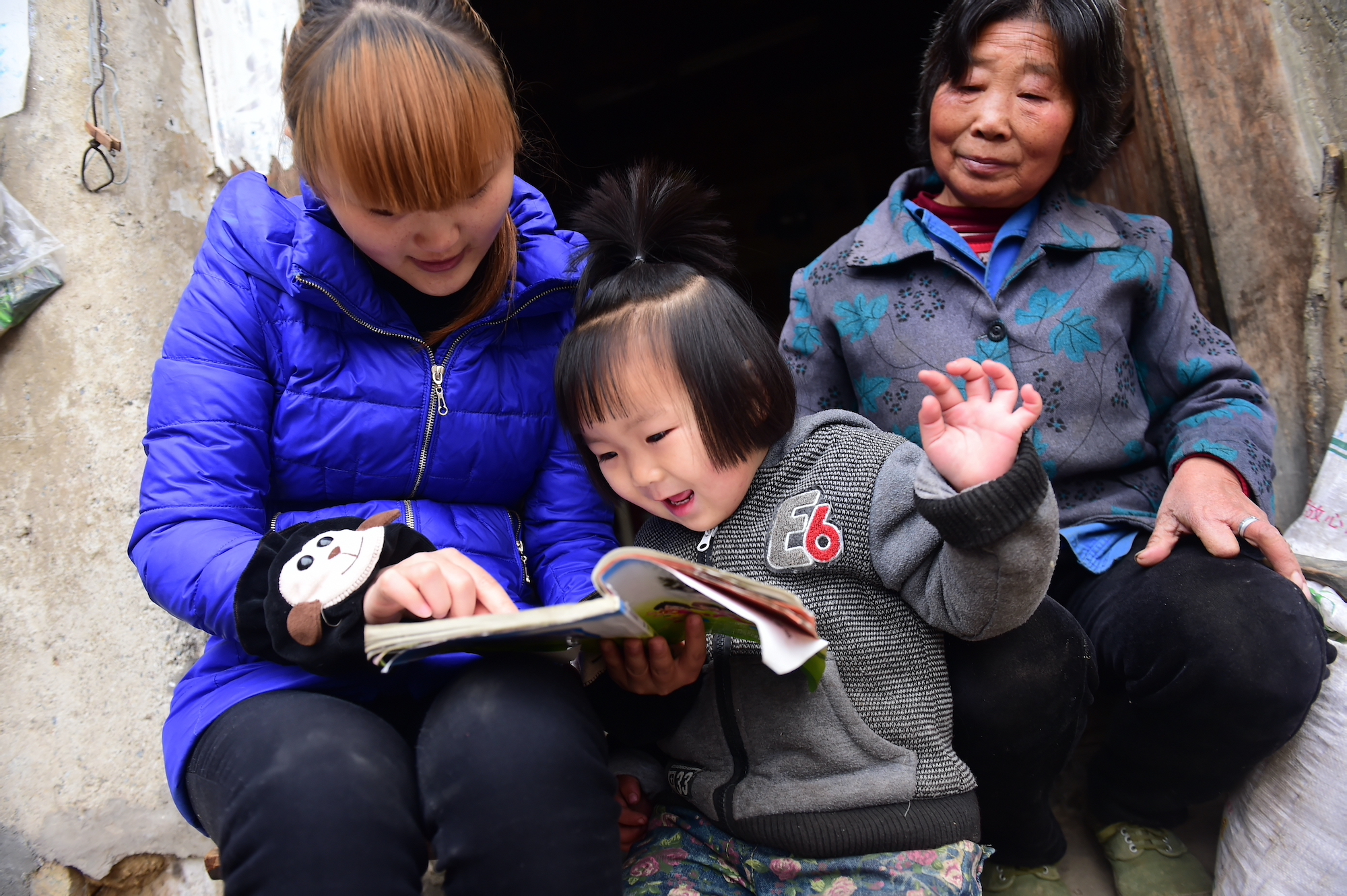
During its annual Philanthropy Week event, Alibaba tapped livestreaming to raise awareness for charity initiatives, such as the China Foundation for Poverty Alleviation's program that recruits volunteers within rural communities to take care of “left-behind children”
Alibaba Group has updated its philanthropic priorities to focus on revitalizing rural areas and protecting the environment, in line with China’s goal of promoting “common prosperity,” the company said during its annual Philanthropy Week.
The announcement came hot on the heels of the company’s pledge to invest US$15.5 billion in tackling wealth inequality.
“As a platform enterprise, we have strived to encourage more players in our ecosystem and the wider society to get involved in philanthropy,” said Daniel Zhang, Alibaba Group’s chairman and CEO.
The company said its technology and digital platforms would play an important role in helping to boost efficiency for charities.
More than 1 million people across the globe participate daily in charitable projects on Alibaba’s “Each Person Three Hours” platform, which lists over 4,000 charities and nonprofit organizations. Every Alibaba employee, including top executives, is encouraged to donate at least three hours of their time to public service each year via the platform. Alibaba’s blockchain technology helps record all donations made by the platform’s users, updating the funds and project statuses in real-time.
In the leadup to Alibaba’s annual Philanthropy Week campaign – which rallies the resources across the company’s ecosystem to champion charitable causes – about 220 million people had joined in the effort as of the week ending Sept. 5.
Charity Fundraising Goes Live
Livestreaming technology helped boost consumer engagement and fundraising during this year’s Philanthropy Week, which heavily featured the sale of rural agricultural produce and raising awareness for philanthropic initiatives.
The streams featured 10 of China’s top influencers, including Austin Li and Viya Huang, as well as celebrities and athletes. Governors from across the country also encouraged sales of their local delicacies, such as hot sauce from Shaanxi’s Pingshun County and peanuts from Henan’s Minquan County.

Viya Huang raised funds for disadvantaged families so that their children could go to college. Zhu Chenhui, another popular influencer who goes by the name “Cherie” online, helped promote a project looking to care for and nurture China’s “left-behind children.” Each year, millions of Chinese children remain in their home villages, usually with relatives, while both parents work elsewhere.
The week’s fundraising will also allow 8,893 children in rural areas to receive new basketball gear. It also has helped 433 chestnut farmers earn a year’s worth of income, while more than 2,000 farmers in Henan Province’s Minquan County sold this year’s crop of peanuts, shifting 11,483 in just 2 minutes.
Liu Wenkui, secretary-general of the China Foundation for Poverty Alleviation, said that greater ecosystem collaboration would be a growing trend in the future of charities.
“When all contribute their firewood, they can build up a strong fire,” said Liu. “When corporations, charities, celebrities, their fans, the wider public and governments combine our powers, it brings a new kind of energy to rural revitalization.”
Saving the Environment
Going forward, Alibaba said it will focus on developing ecofriendly technologies while exploring new ways to make its digital tools and platforms greener.
In 2020, the Alibaba Foundation and the Jack Ma Foundation invested more than RMB100 million (US$15.5 million) in environmental protection initiatives. Meanwhile, Alibaba’s “Each Person Three Hours” platform has encouraged more than 80 million people to participate in charity projects promoting sustainability.
Cainiao Network, Alibaba’s logistics arm, has greened delivery, from using e-shipping labels to replacing traditional paper stickers, to setting up recycling stations in 315 Chinese cities.
Cainiao’s algorithms help reduce waste by matching products with the right-sized packaging, allowing its warehouses to cut the number of boxes it delivers by about 530 million per year.
The company’s app also features a gamification feature, “Cainiao Ocean,” which converts consumers’ sustainable activities – such as recycling unwanted packaging and opting out of single-use plastic utensils when ordering food – into virtual “energy points” that ultimately support beach cleanup efforts. Cainiao has hosted nearly 200 cleanup events in 58 cities to date.
Similarly, Alipay’s Ant Forest tree-planting mini-program rewards consumers with virtual points for making environmentally friendly lifestyle choices, like taking public transportation to work instead of driving. The e-wallet’s users can put their Ant Forest points towards growing virtual trees, which are converted into real ones planted by Alipay and its NGO partners in some of China’s most arid areas in need of reforesting.
As of last month, Alipay has helped more than 600 million users plant over 326 million trees since the mini-program’s launch in 2016.
“For 10 years, we’ve held on to the promise to earmark 0.3% of our annual revenues to philanthropy,” said Alibaba’s Zhang. “I have no doubts that we will continue on this path. It is one of the most precious promises that Alibaba has ever made.”
To receive the latest news directly in your inbox, sign up for the weekly Alizila newsletter




